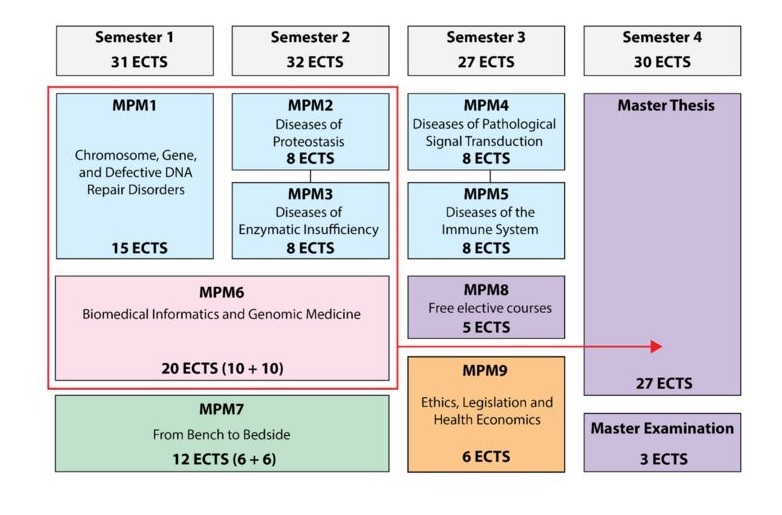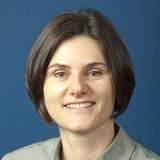About Precision Medicine
Rethinking medicine: precision medicine/personalised medicine is bringing about a paradigm shift in medicine. Every person has unique DNA and a unique, individualised gene sequence. On the one hand, we carry the information stored here with us from birth; on the other hand, our DNA is subject to individual changes over the course of our lives. These can be caused by exogenous factors or by lifestyle influences. This genetic disposition is the reason for a possible, gene-related risk of a certain disease. Medicine based on the "one-size-fits-all" treatment method has often been associated with side effects or, in some cases, little success in curing the disease. The best form of therapy and prevention is therefore personalised medicine: precision medicine.
Registration of the Master course
On our Study & Further Education homepage you will find all the important information and basic requirements for successfully starting the Master's degree program in Molecular Precision Medicine.
As the number of places on this Master's program is limited to 25, a suitable application procedure will determine your admission. Therefore, please note the prescribed application deadlines. (once a year)
Structure of the Master course
The aim of the Master's programme Molecular Precision Medicine at the Medical University of Vienna and the University of Vienna is to train highly motivated and talented students in the scientific basis of human diseases, the development and clinical evaluation of therapeutics and modern clinical practices in the context of precision medicine.
Students will learn the pathogenesis of human disease at the molecular and mechanistic level. They learn how this information can be used to develop precision therapeutics that target the underlying causes of disease; how these therapeutics are evaluated for efficacy and toxicity; and what future challenges will face precision medicine. Fundamental scientific and therapeutic concepts are illustrated in detail using appropriate diseases and case studies to enable students to understand disease from the molecular basis to clinical treatment.
Students will acquire the skills to analyse large datasets of genomic information using bioinformatics, including programming and applied statistics. Students will be exposed to ethical and health economic issues related to the practice of precision medicine so that they can critically evaluate future socio-economic challenges.
For more information, please refer to the curriculum letters under the item "Structure of the Master course".
-
The workload for the master's program Molecular Precision Medicine is 120 ECTS credits. This corresponds to a planned study duration of four semesters.
- The study program is completed when 90 ECTS credits according to the regulations in the compulsory modules, 27 ECTS credits according to the regulations on the master's thesis and 3 ECTS credits according to the regulations on the master's examination have been positively completed.
- Graduates of the master's program Molecular Precision Medicine are awarded the academic degree "Master of Science" (MSc).
- In case of guidance, this academic degree is to be placed after the name.
- Graduates will be equipped to pursue careers in basic, clinical, or biomedical research in academia or industry (e.g., biotechnology, pharmaceutical industry) with a deep molecular and mechanistic understanding of human disease. Students will acquire knowledge of basic molecular laboratory techniques.
- Graduates receive detailed training in human disease pathogenesis at the molecular and mechanistic levels. They also have core competencies in bioinformatics, including programming, data mining and interrogation, and statistical analysis, enabling them to pursue careers in academic bioinformatics as well as clinical analysis of genomic datasets.
- Graduates will also have basic knowledge of clinical presentation, target identification processes, and evaluation of therapeutics in the clinic, which will enable them to bridge the gap between research and the clinic. Graduates will also have the opportunity to apply their knowledge and skills in the field of public health


